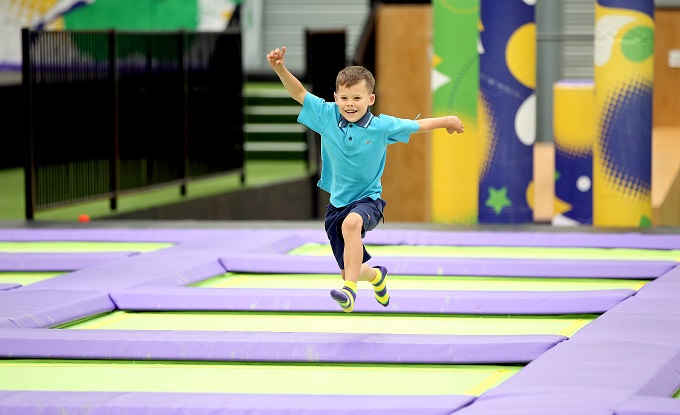
<h2>In an era of ever-increasing concern about the health and well-being of children – and of how lack of exercise and poor diet can have consequences extending throughout a person’s life – it is little wonder that health and physical education is a major focus of the New Zealand Curriculum for schools.</h2>
<h3>And an integral part of encouraging children to be more active is through <strong>School Sports Excursions and In-School Visits</strong> – activities that, in turn, impact upon students’ own well-being and the well-being of others.</h3>
<p>For example, according to the Ministry of Education, health and physical education is underpinned by four guiding concepts:</p>
<ul>
<li><strong>Hauora</strong>– the Māori philosophy of interconnected health (including mental, emotional and physical well-being)</li>
<li><strong>Attitudes and values</strong>– including respect, care, and concern for personal well-being, that of others and of the environment, and a sense of social justice</li>
<li>A <strong>socio-ecological perspective</strong>–viewing and understanding interrelationships between self, others, and society.</li>
<li><strong>Health promotion</strong>– developing and maintaining supportive physical and emotional environments, and involvement in personal and collective action</li>
</ul>
<p><img class="aligncenter size-full wp-image-9276" src="https://www.schoolnews.co.nz/wp-content/uploads/2018/05/SR-Sports-Excursions-and-In-School-Visits-JumpWithMe1.jpg" alt="" width="680" height="479" /></p>
<p>Both school sports trips (say, involvement in inter-school competitions) and in-school visits (such as timetabled sports activities run by outside providers) address these curriculum concepts – for example, by providing challenges that allow students to develop the resilience and sense of personal and social responsibility so important for their later lives.</p>
<p>Yet while sport and exercise has traditionally been promoted mainly as improving young people&#8217;s physical health, recent research is increasingly indicating that it has a positive impact on students’ wider academic performance and social behaviour.</p>
<p>Indeed, such evidence suggests that well-delivered sports and activities programmes can bolster valuable character traits, boost self-esteem, foster teamwork and leadership skills, relieve stress and promote healthy lifestyle habits.</p>
<p>Other valuable skills acquired through sports include time management, increased focus and concentration, learning to handle pressure and assessing when to take risks.</p>
<p><img class="aligncenter size-full wp-image-9275" src="https://www.schoolnews.co.nz/wp-content/uploads/2018/05/SR-Sports-Excursions-and-In-School-Visits-JumpWithMe5.jpg" alt="" width="680" height="906" /></p>
<p><strong>Here, qualified teacher Joy Laurie, operations manager of</strong> <strong>indoor trampoline park JUMP, addresses questions on sport and physical education in schools.</strong></p>
<p><em>In your opinion, what are the biggest concerns/issues within sport &; recreation in schools?</em></p>
<p>Students not getting the appropriate <a class="wpil_keyword_link" href="https://www.schoolnews.co.nz/2015/10/developing-opportunities-at-school-with-a-view/" title="opportunities" data-wpil-keyword-link="linked" target="_blank">opportunities</a> to learn in, through and about movement; for example, schools outsourcing programmes that are not curriculum-related, thereby hindering their overall learning experiences. </p>
<p>In addition, students not getting equal opportunity: the ‘sporty’ kids getting valued over the ‘not so sporty’. Some teachers/coaches are not catering/adapting their pedagogical practice to benefit all abilities, which then leads to students dropping out of sport, exercise or physical education at a young age.</p>
<p><em>How does sport &; recreation benefit students? </em></p>
<p>Sport &; recreation provides all students of different races, religion and cultures with the opportunity to come together and work as a team. It allows students the opportunity to experience leadership skills; develop fine motor skills; promotes active lifestyles, e.g., walking to school rather than driving (being active is an important aspect of ‘being healthy’; and, provides the opportunity to learn about the physical environments (potentially contributing to later protecting the environment).</p>
<p>Sport &; recreation or physical education teaches students to be healthy, lifelong learners.</p>
<p>Students are able to learn about all dimensions of their wellbeing through participating in sport – it is not just about the physical needs but also mental, emotional and spiritual. In a sense, it broadens their horizon. </p>
<p>Games with rules could enable students to be better contributing citizens to society as they are used to sticking to a set of rules and understand the consequences of breaking these rules. It also binds communities and families through shared experiences – and keeps students away from sitting in front of a screen!</p>
<p><em>Are there particular considerations sports teachers should take into account, or tips/advice about encouraging students to take part?</em></p>
<p>I think teachers need to be encouraged to look beyond just the ‘sporty’ and ‘abled’ students in the classroom and start adapting their pedagogical style to meet not only the less abled students but the different cultures and genders that make up an entire class. It is so easy for young children to have one bad experience that they will draw upon throughout the entirety of their life. This one bad experience could determine whether they choose to take part in sport and recreation or miss out altogether. </p>
<p>Always reflect and be open to change! Reflect on your activities, reflect on your students’ abilities, reflect on their physical environment, reflect on your teaching practices and think to yourself, ‘Am I catering to everyone here?’.</p>

EXCLUSIVE: Teachers used to be paid two to three times more than minimum wage workers,…
After an “overwhelming” vote to reject the latest Government offer, secondary school teachers will begin…
Second-language learning should be compulsory, says a new report from a forum bringing together academics,…
A new entitlement aimed to improve access to learning support coordinators for schools with students…
Educators have raised questions about the Ministry of Education’s new secondary school subjects, set to…
Professional learning and development (PLD) for teachers needs to be higher impact for teachers and…
This website uses cookies.